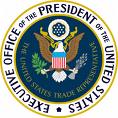 On New Year’s Eve, the Office of the U.S. Trade Representative issued a Federal Register Notice announcing 2013’s Special 301 Review. This is the annual process in which an interagency committee led by USTR conducts a review “to identify countries that deny adequate and effective protection of intellectual property rights (IPR) or deny fair and equitable market access to U.S. persons who rely on intellectual property protection.” The process ends with the publication of the Special 301 Report, which includes various countries on the “Watch List,” the “Priority Watch List,” or as “Priority Foreign Countries.” If a country is listed as a Priority Foreign Country, this can lead to formal sanctions (though the U.S.’s membership in the WTO complicates this).
On New Year’s Eve, the Office of the U.S. Trade Representative issued a Federal Register Notice announcing 2013’s Special 301 Review. This is the annual process in which an interagency committee led by USTR conducts a review “to identify countries that deny adequate and effective protection of intellectual property rights (IPR) or deny fair and equitable market access to U.S. persons who rely on intellectual property protection.” The process ends with the publication of the Special 301 Report, which includes various countries on the “Watch List,” the “Priority Watch List,” or as “Priority Foreign Countries.” If a country is listed as a Priority Foreign Country, this can lead to formal sanctions (though the U.S.’s membership in the WTO complicates this).
As part of the process, USTR solicits written comments from all interested parties, and holds a public hearing which is open to all interested parties. This year, written comments and requests to testify at the hearing must be submitted by February 8 (with the exception of comments from foreign governments, which can be submitted until the 15th). The hearing will be on February 20. The Special 301 Report will be published “on or about” April 30.
The Special 301 Report has been a controversial exercise for a number of reasons. The United States has used it to publicly criticize countries for allegedly weak IPR policies that adhere to the international IPR norms found in the WTO’s TRIPS Agreement (for instance, not issuing second-use patents). The process is routinely criticized for being nontransparent – with seemingly arbitrary listing decisions when it comes to which countries wind up on the list and which do not.
There are questions of whether it is appropriate for USTR to be unilaterally calling out trading partners instead of using the multilateral trade system to settle disputes. As a WTO Member, the U.S. can’t levy sanctions against other WTO Members without bringing a dispute to a WTO Dispute Settlement Panel, but being blacklisted by the U.S. has led countries to change laws and policies. (See for instance, recent blogs on legal changes in Pakistan and the Philippines).




